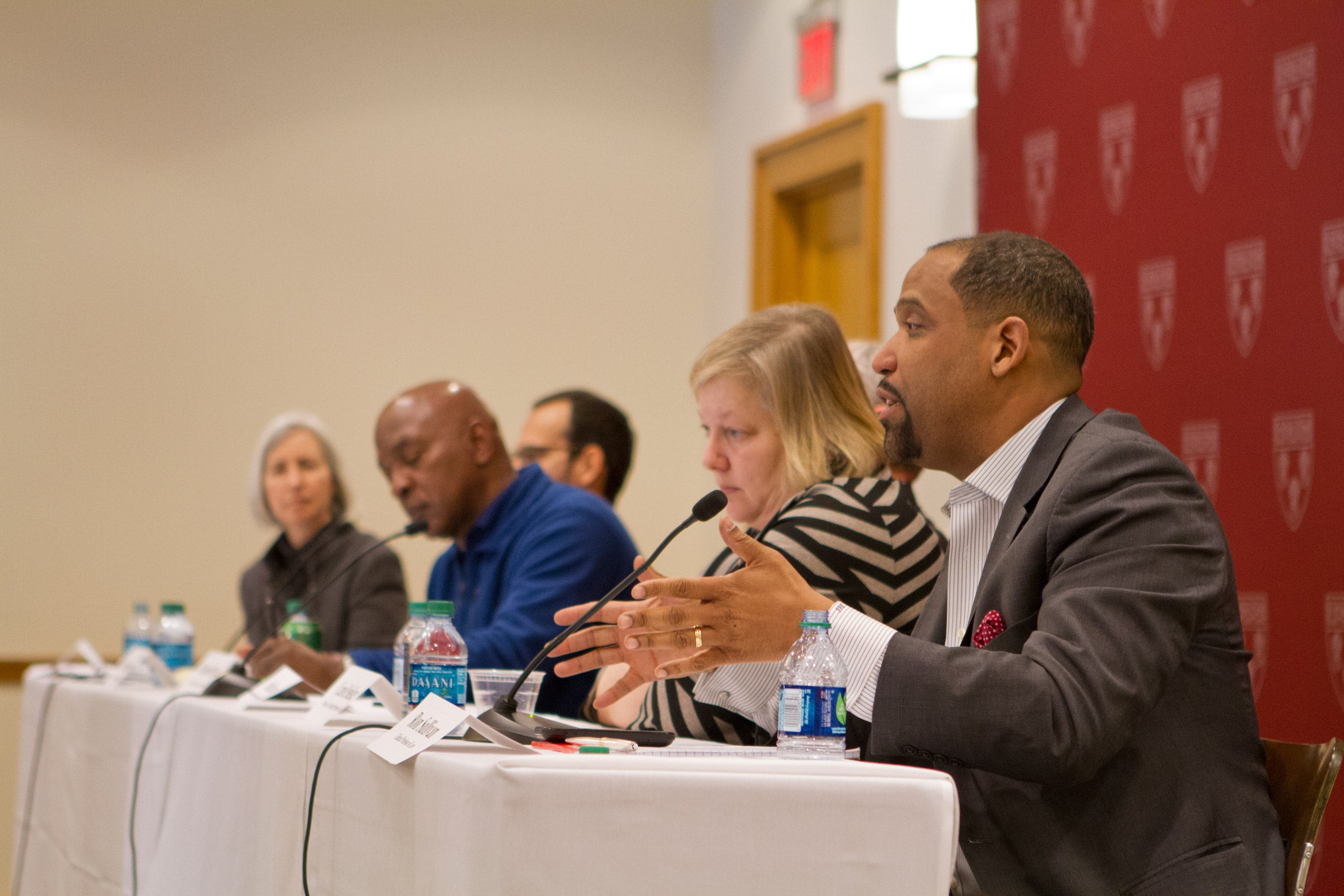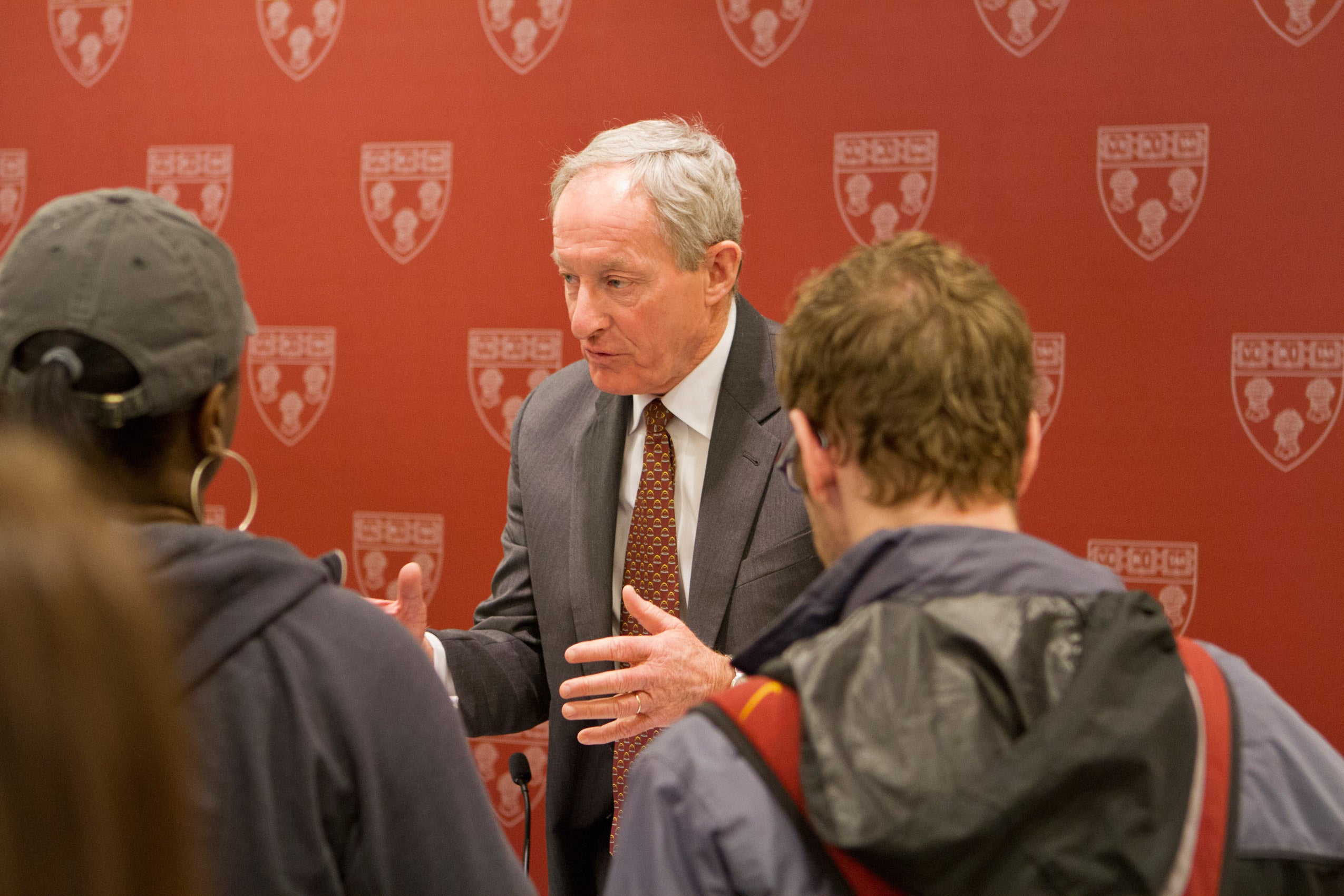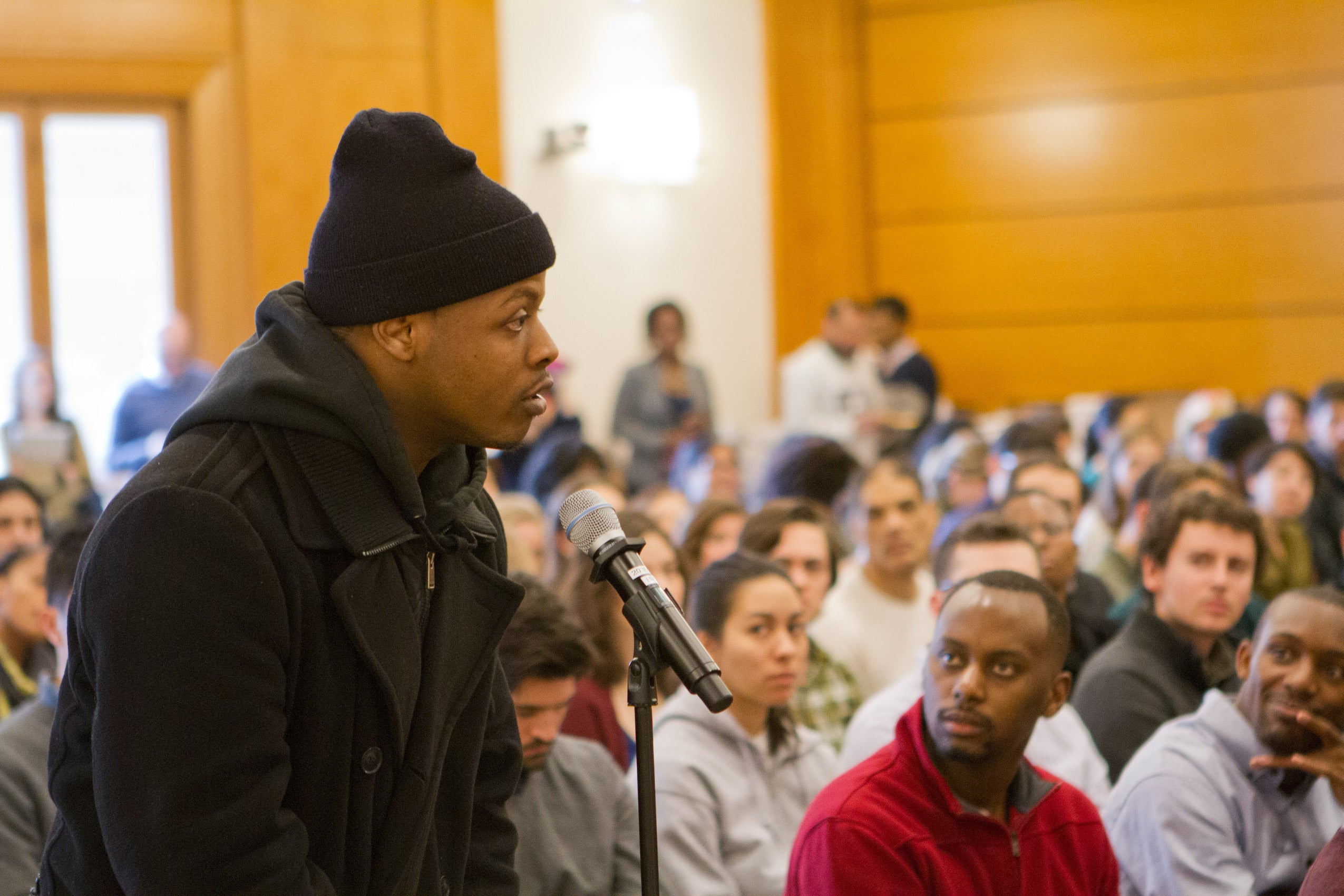In the wake of the decisions by grand juries in Ferguson, Missouri and Staten Island New York not to indict police officers for the deaths of unarmed black men, the Harvard Law campus has seen a wave of activism, emotional outpouring, and events focused on race and justice. On Friday, Feb. 6, after several town hall meetings in which students and faculty shared their experiences and observations of discrimination and systemic injustice, as well as hopes for pedagogical and cultural shifts at the law school, the community convened to examine possible legal and policy reforms.
In a talk titled “Criminal Justice and Policing after the Events in Ferguson, Staten Island, Cleveland and Elsewhere,” Dean Martha Minow led the panelists, Professors Andrew Crespo ’08, Charles Ogletree ’78, Carol Steiker ’86, and Ron Sullivan ’94, along with former Boston Police Commissioner Paul Evans, through a discussion of concrete reforms lawyers and activists could pursue to address widespread concerns about racial profiling, police use of deadly force, and other criminal justice issues that have dominated the national conversation since Michael Brown’s death by police shooting in Ferguson, Missouri last summer.
Crespo, who along with all the professors on the panel is an alumnus of the Public Defender Service in Washington, D.C., began the discussion of possible concrete reforms with the idea of exposing to public comment and debate what he called the “secret law” of police governance – sets of internal rules and regulations governing police conduct that the public has little access to. With little to no oversight of the rules by which police abide, Crespo said, police actions end up being scrutinized only after the fact, through suppression hearings, internal affairs, complaint boards and civil lawsuits, rather than with structural reforms that could address police conduct before incidents arise.
“The root problem is fundamentally a democratic problem, a disconnection between the way policing operates in our major urban cities and the community being policed,” Crespo said. “We have gotten to a place where it seems the people being policed are not necessarily thought of as the people in control of the police as an institution in our government.”

Ogletree and Sullivan also focused on issues of community involvement, with Ogletree calling for students – whether they be interested in pursuing careers in criminal justice or not – to take an active interest in the criminal justice system. Sullivan said he was shocked to discover that ordinary citizens did not know that prosecutors could bring cases to a grand jury multiple times, and argued for increasing civic engagement by better educating citizens on the laws. In addition, Sullivan suggested a more controversial reform – making police officers, as well as the offices they work for, personally liable for using excessive force.
Steiker, on the other hand, addressed problems that can arise from police and prosecutors being too local – namely that police officers largely escape liability for the use of deadly force because the prosecutors in charge of bringing charges against them are the same attorneys with whom police officers regularly work to prosecute other crimes.
“There’s a lot of interesting work about how law-abidingness is produced by people’s belief in the legitimacy of law,” Steiker said. “And nothing breeds lack of legitimacy more than when the same system that regularly holds members of the community accountable for their conduct evades responsibility for its own conduct.”

Thus, Steiker added, independent prosecutors should be brought in to investigate cases brought against police officers. Although in a later question-and-answer session, Chris Magnani ’15 asked whether state-wide or specialized prosecutors may end up with their own sets of biases, Steiker said that although there might be multiple possible solutions, “the key is to look for independence.”
Evans, who after serving as the police commissioner of Boston later led the Police Standards Unit of Britain’s Home Office, in charge of assessing the performance of British police units, brought an additional perspective to the academic debate. Evans stressed the seriousness with which most police departments take deadly force, and suggested that internal reforms – such as focusing on diversity in hiring, data analysis and internal investigations into police conduct were useful tools for increasing accountability. He also focused on constraints police departments face, however, such as the fact that because police officers are part of the civil service, hiring is constrained by evaluation metrics that are not chosen by individual departments or supervisors.
At the end of the panel, Minow promised another future event to continue to grapple with the issues that have been heavily debated over the last six months.
Sam Koplowicz ’16, who attended both the December town hall and the February panel, said that the panel had been a good start and that he look forward to future discussions. “I saw the December conversation as inward-focused, and this one as policy-focused,” Koplowicz said. “Both of these are the kinds of discussions we need to be having, especially in places like the law school.”
